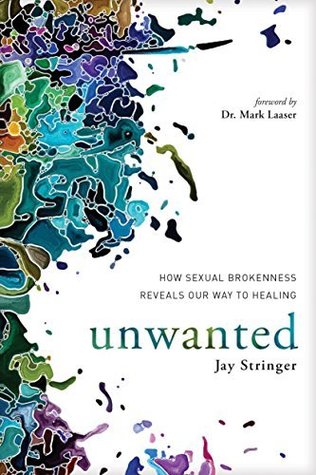More on this book
Community
Kindle Notes & Highlights
by
Jay Stringer
Read between
May 3 - June 13, 2019
My research found that 47 percent of men and women did not have someone they could talk to when something difficult happened in their childhood. It is not that these children did not have parents; it is that children discern whether or not they can feel safe bringing the difficulties of life to their parents.
A child needs to hear sex talked about in a way that honors the natural, God-given changes and desires that will accompany them from childhood to adulthood.
Sadly, they allowed the most vulnerable and beautiful dimension of their children’s lives to be shaped by the media, the porn industry, or porn-saturated peers.
Madison was not a worthless woman because she viewed pornography or used hookup apps. Rather, she felt worthless and therefore was drawn to pornography, a behavior that, for her, would confirm this belief.
When we condemn our God-given desire to be loved and accepted, we should be on high alert for the ways we will trash this longing through shameful behavior.
Pornography searches expose lust, but far more they reveal the dimensions of our lives that await love.
“With porn, I am served.
The dilemma was that pornography use would persist until Tom would choose to bring his needs and emotions to the crucible of the present. Therapy invited him to see what it would mean to bring his anger to reality—toward the people and themes that contributed to his exile—rather than to the world of pornography.
The more he brought the fullness of his needs and anger to the present, the less pornography appealed to him.
The type of sexual behavior we pursue is a direct reflection of how highly or poorly we think of ourselves.
I have come to understand that people make bad decisions not because of the potential for pleasure but to add additional evidence to their self-judgment. Healing involves making conscious decisions about the data of sexual brokenness in one’s life. Your behavior can be an invitation to become an adult and heal the pain driving your decisions, or it will inevitably be irrefutable evidence that proves how pathetic you have become. To write a new sexual story for yourself, something must shift in your commitment to hiding the anxiety, shame, and anger in your life.
“too much uncomfortable comfort.”
Although emotional enmeshment may never involve a parent touching a child’s genitals, your sexual development is influenced by the emotional burdens you undergo.
One of the reasons many marriages fail or exist in perpetual conflict is that the husband or wife remains exceedingly loyal to his or her parents instead of to his or her spouse.
If you are a spouse more committed to rescuing your parent, your faithfulness to your own marriage is compromised. Examples of this might include receiving “perfectly timed” communications from your mother or father that leave you ambivalent and anxious. It could be a text about a sibling struggling with his or her faith, a phone call that your dad’s health is not doing well, or an e-mail that finances are really stressful for the family. The unsaid expectation is that you need to step up to resolve this problem and offer care so the peace of the family can be restored.
Whereas scars reveal external wounds, unwanted sexual behavior often reveals internal ones.
“We have learned that trauma is not just an event that took place sometime in the past; it is also the imprint left by that experience on mind, brain, and body.”[1]
For example, if you were called stupid as a child, the imprint of the wound may be revealed in your relentless attempts to be competent or the toxic shame you feel when someone realizes you do not know how to do something.
Although there may not have been a single catastrophic form of trauma in James’s life, the accumulated experiences of rejection, humiliation, mockery, and scapegoating collectively served the same purpose.
as we continue to dig deeper, we will see that many of the themes of pornography often mirror the impact of trauma: the misuse of power, deception, humiliation, and sexual gain. Pornography streams through our eyes and into the crevasses of our trauma.
Healing requires you to pivot from condemning your lack of willpower to addressing the role trauma may be playing in your unwanted sexual behavior.
We can be so preoccupied with filling our lives with something to do rather than trusting that God wants to do something within us.
Additionally, few people receive comprehensive sex education, and most sex education, when it does take place, focuses on what to avoid. Try learning how to cook if the only thing you ever learned about was food poisoning.
It is an utter tragedy that people who are sexually broken leave the church (what should be the safest, most trustworthy place to explore their sexuality) marked by the trauma of sexual shame and silence.
When I first work with clients, they often say something along the lines of “I don’t have a history of sexual abuse that I know of.” But then they go on to use words and phrases such as “It was weird,” “He was a little off,” “I was partially responsible,” and “It wasn’t that sexual.” The reality is that one in four girls and one in six boys are sexually abused by the age of eighteen.[5] If our first sexual template was formed somewhere on the spectrum of sexual abuse, it would benefit us to be curious about how the harm may have continued to play out over a lifetime.
The madness of sexual abuse is that the initial relationship feels so right before it begins to feel so wrong.
I wish I could say that this hatred is effective in healing unwanted sexual behavior, but the evidence is that contempt is gasoline on a fire.


